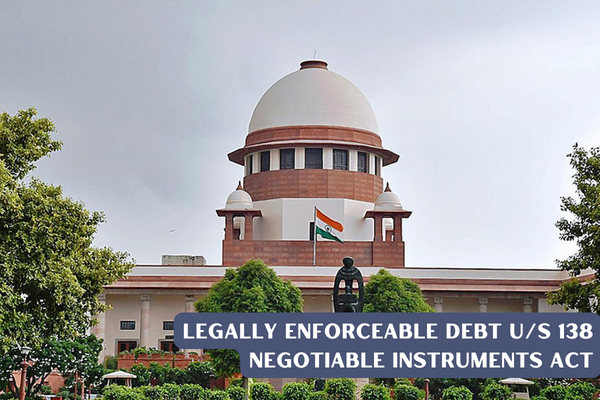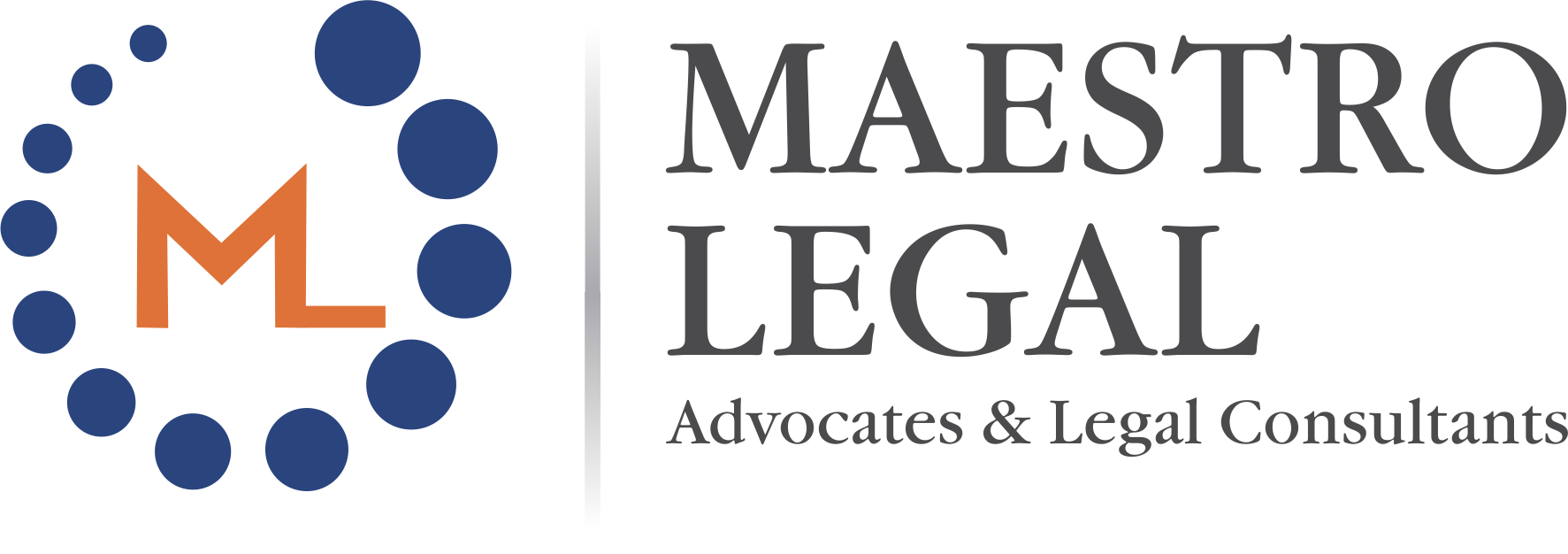- October 15, 2022
- Posted by: Maestro Legal
- Categories:

by Adv. Vaibhav Shahi & Mr. Lakshay Tewari
Decoding the Latest Judgement of the Supreme Court clarifying that Section 138 of NI act does not treat the amount to be paid on instrument, as a debt if the previous part payment is not indorsed.[1]
Dismissing the appeal filed against the judgment of the Hon’ble Gujrat High Court, the apex court held that if a part payment is made in respect to a “legally owned debt”, then there arises no liability in case there is no endorsement of the part payment w.r.t Section 56 of the act and if the part of the amount is paid before maturity of the cheque and after the drawee has lent the debt to the drawer.
In its Judgement the Gujrat High Court held that since the part of the debt was discharged by the respondent, a notice under Section 138 is not valid in case the bounced cheque represents a value of the total amount of debt. Moreover, the HC held that the part payment done by the respondent should also have been represented for enforcing a notice under Section 138 and for holding the drawer liable.
The facts were that in April 2014, a notice for recovery of rupees 20 lakhs given as debt to the respondent by the appellant was issued by the appellants that the cheque having the maturity date of 17th March, 2014 was dishonoured due to insufficiency of the funds in the account of the respondents. The appellant and the respondent were relatives. The son of the appellant is the husband of the respondent’s sister.
Further, Section 138 of the Negotiable Instruments Act, 1881 reads that if the cheque issued by the drawer is dishonoured due to the reason of insufficient fund or if due to an arrangement of the drawer with the bank where whole or part of the amount in cheque is more than the limit, then the drawer of the cheque is to be held liable and is said to have committed an offence under Section 138 of the NI Act.
Further, the proviso clause under Section 138 gives three condition which are to be fulfilled before proceedings can be initiated under this section.
- First, that either from the date it was drawn or before the expiration of its validity, the cheque has already been presented to the bank within six months from either of the two dates mentioned above, whichever is earlier.
- Secondly, that the payee in whose behalf cheque has been drawn has given a notice to the drawer, within thirty days, about the returning of the cheque as unpaid.
- Thirdly, if the drawer has failed to submit the said amount to the payee within fifteen days of the notice given regarding the cheque being returned as unpaid.
The apex court upon hearing the submissions of both the learned counsels held that if the part payment has not been endorsed upon the cheque and if the cheque represents the full amount that was payable, no offence under Section 138 of the Negotiable Instruments act is made out, and also, the amount represented upon the cheque dishonoured cannot be treated as “legally enforceable debt”.
Further the court also clarified that if the part payment done in the past has been endorsed in the cheque in the format as prescribed under Section 56 of the act, then the lability is attracted if the cheque gets dishonoured and it shall be treated as a “legally enforceable debt”.
At this point it is pertinent to understand the way prescribed under Section 56 of the act which says that where an amount has been partly paid then a note should be indorsed upon the instrument for the purpose of negotiation with the balance left.
Moreover, the court held that the proviso clause under the act need to be fulfilled for the purpose of making out an offence under Section 138 of the NI Act, 1881.
Hence, the court dismissed this petition challenging the order of Gujrat High Court and the petition stood disposed of bringing in light a new concept of “legally enforceable debt”
[1] Dashratbhai Trikambhai Patel versus Hitesh Mahendrabhai Patel and others | Crl.A. No. 1497/2022
